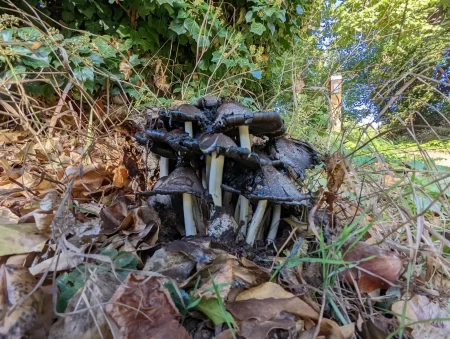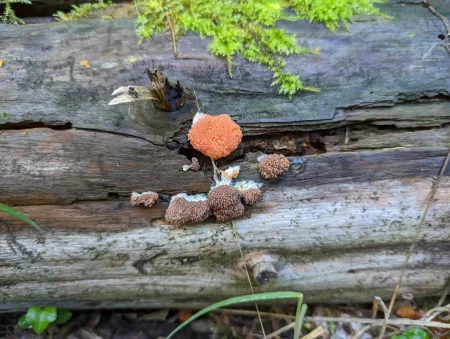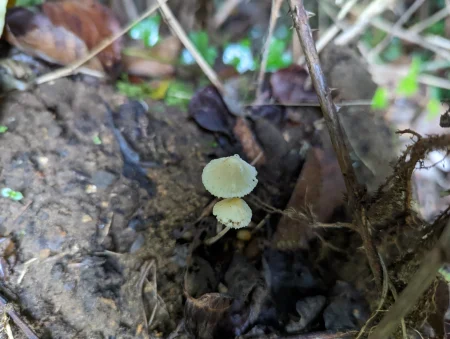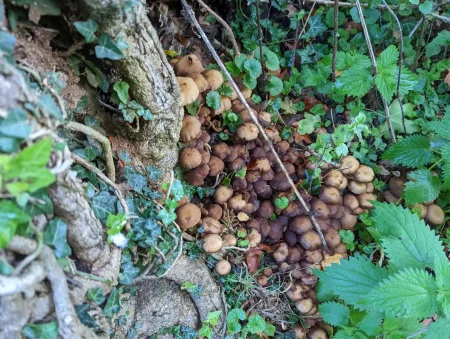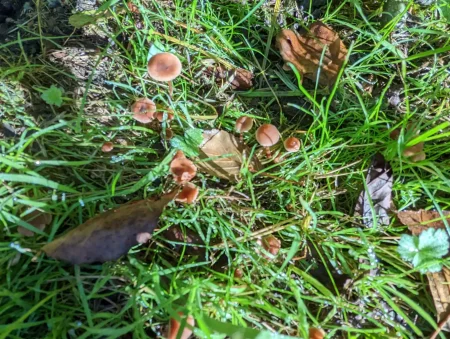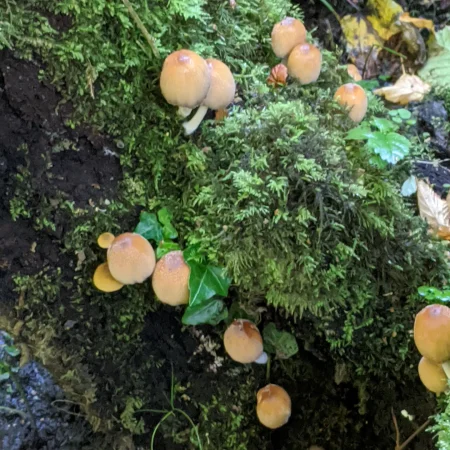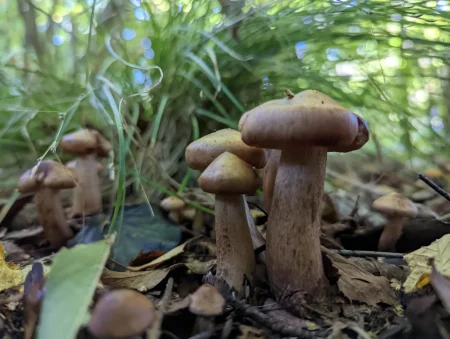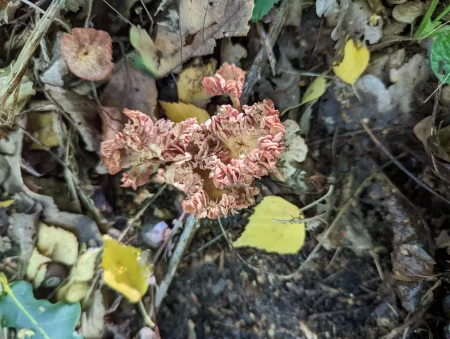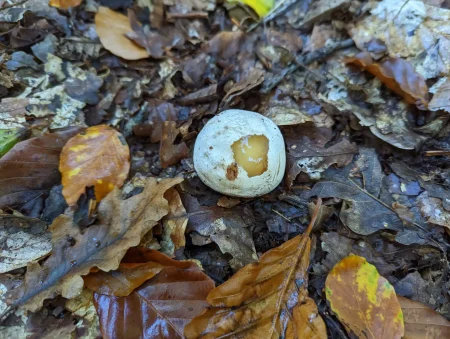Today it was bright with a very cold wind and the air was damp.
CAR PARK
In the main car park I spotted a clump of Coprinopsis atramentaria in the grass (Fig. 4.0) and again just before the railway crossing gate in the verge.
ENTRANCE AREA
In the entrance yard most of the Agaricus had gone, and the few remaining had inky-black gills and thinner yellowish caps.
Entering the reserve, along the trail to Basecamp, I found a group of large white fungi in leaf litter (Fig. 4.1).
In the grass I found some green Stropharia species (Fig. 4.2), a grey wax-cap like species (Fig. 4.3) and four peach-coloured clumps of the slimemould Tubifera ferruginosa (Fig. 4.4).
Tricholoma album
Entrance Path
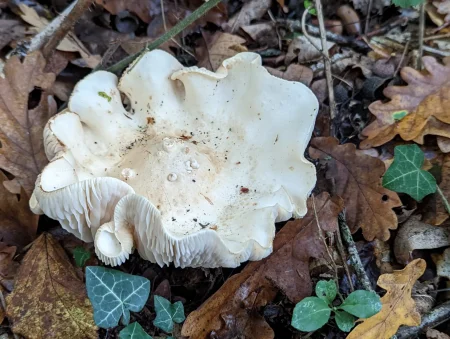
Figure 4.
Stropharia species
Entrance Path
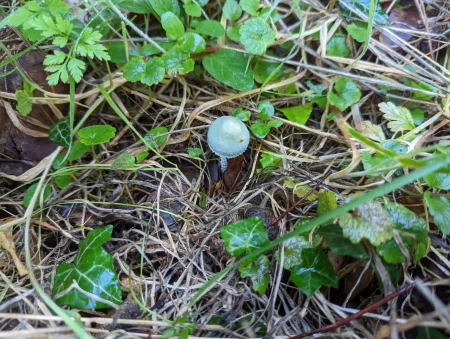
Figure 4.
Unidentified
Entrance Path
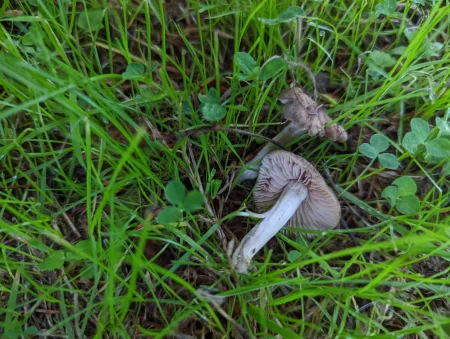
Figure 4.
Tubifera ferruginosa
Entrance Path
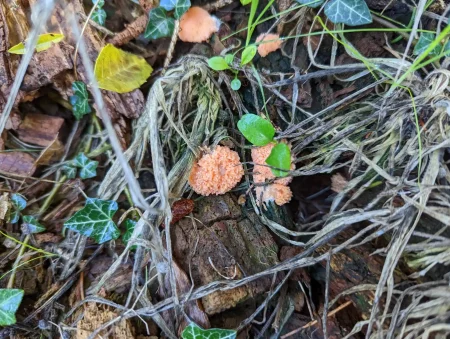
Figure 4.
BASECAMP AREA
On the same rotting log as the previous week, I saw more mature Tricholomopsis rutilans, the same troop of Laccaria laccata nearby, another group of Tubifera ferruginosa (Fig. 4.5).
In a darkened area, I spotted some small unidentified fungi (Fig. 4.6).
Behind Basecamp, on the path to the railway line, I spotted a prolific fungus around the base of an ivy covered tree stump that I believe is Psathyrella piluliformis (Figs. 4.7).
THE DELL
Just at the base of a log, I spotted Mycena rosea (Fig. 4.8) and in the grass I found the tiny Mycena acicula (Fig. 4.9).
I saw more Coprinopsis lagopus in the open grassy areas (Fig. 4.10).
On top of many of the logs there were quite a few Mycena (Fig. 4.11).
Mycena rosea
The Dell
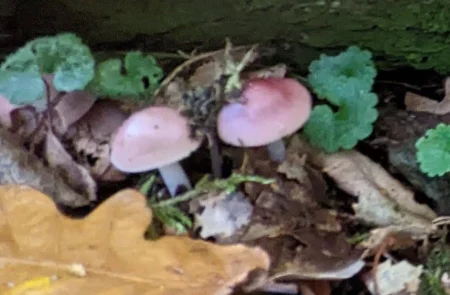
Figure 4.
Mycena acicula
The Dell
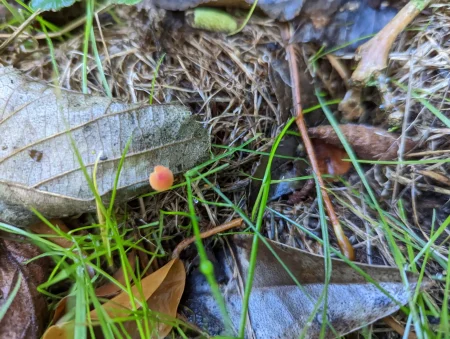
Figure 4.
Coprinopsis lagopus
The Dell
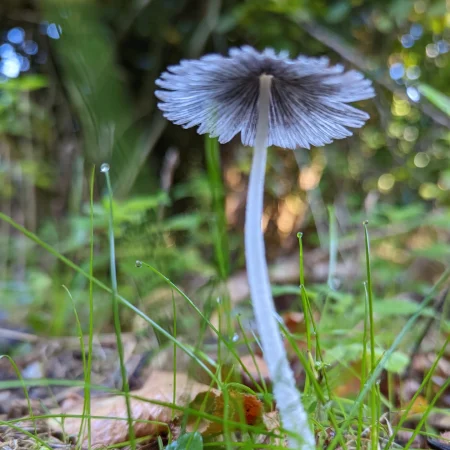
Figure 4.
Mycena species
The Dell
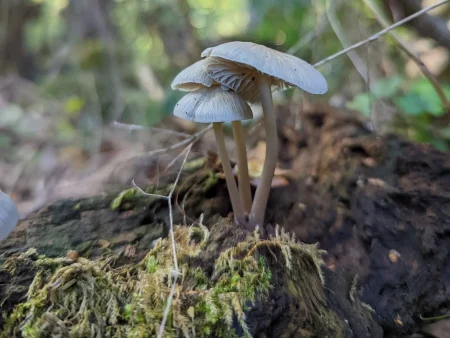
Figure 4.
ENCLOSED AREA
Past the Gnarly Oak along the drainage channel path, I saw a cluster of Laccaria laccata (Fig. 4.12) and Bolbitius titubans (Fig. 4.13).
At the Enclosed Area, I found Clavulina coralloides and the Picipes badius from previous weeks.
In a muddy area on a moss covered stump I saw Coprinellus micaceus (Fig. 4.14).
I also found what may have been Tricholoma fulvum (Figs. 4.15).
YEW GROVE AREA
At the Yew Grove, I saw the Coprinopsis atramentaria from week three — they had grown to have blackened upturned caps and tall white stems.
Out of another log, more had sprung up, and on other logs many had fallen over, their heads deliquesced to nothing.
OUTPOST AREA
Just past the Outpost I saw a large grey fungus (Fig. 4.16).
In the Outpost itself, I saw Hypholoma fasciculare (Fig. 4.17) and a young Amanita muscaria (Fig. 4.18).
Unidentified
The Outpost Area
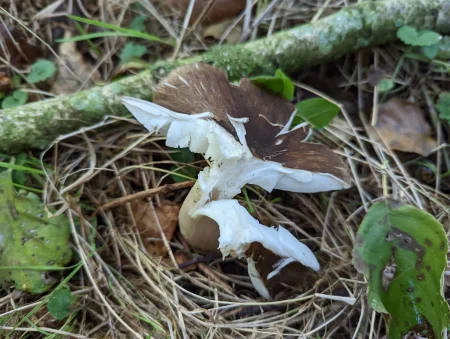
Figure 4.
Hypholoma fasciculare
The Outpost Area
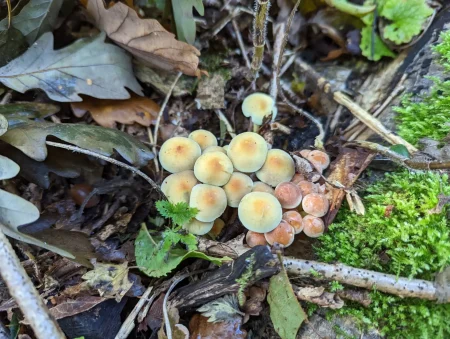
Figure 4.
Amanita muscaria
The Outpost Area
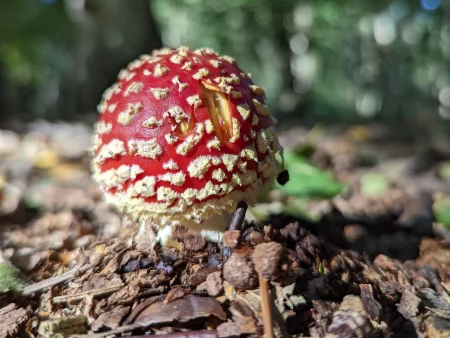
Figure 4.
TRAIL END AREA
Wandering around this wooded area I saw a troop of Laccaria bicolor (Figs. 4.19) and two Phallus impudicus eggs (Figs. 4.20).
The Fuligo septica from Day 2 had turned to a greenish white lump and at the end of the trail I saw the Gymnopilus junonius from week three.
